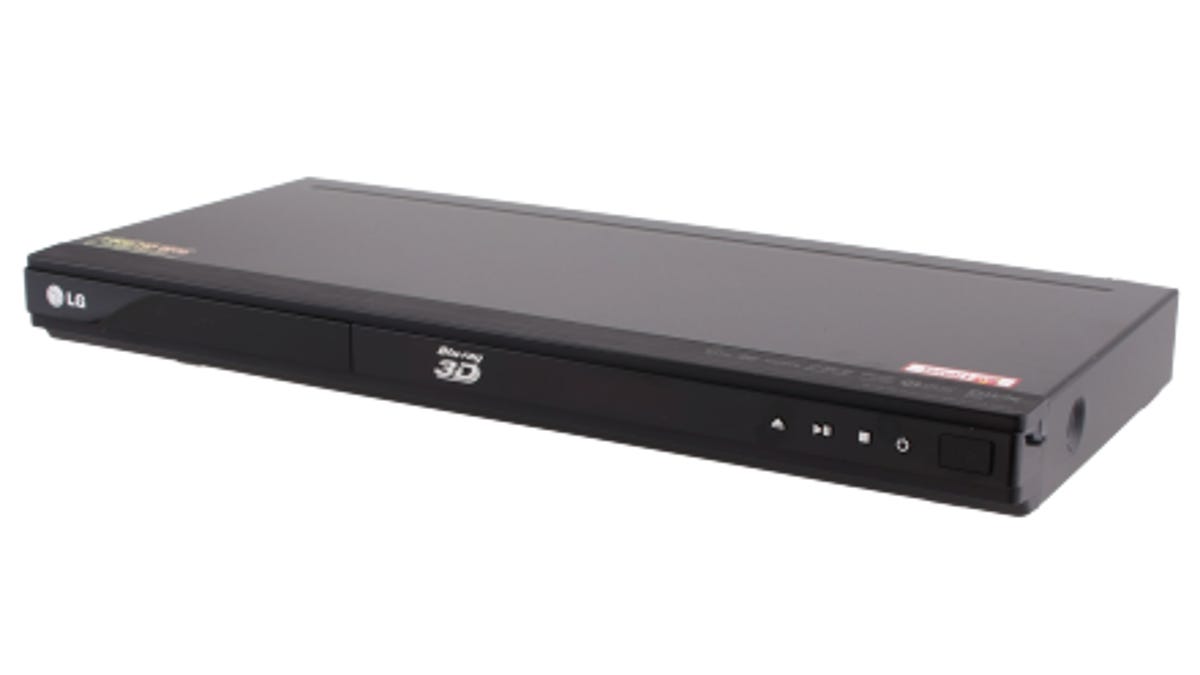 Why You Can Trust CNET
Why You Can Trust CNET What's the deal with Blu-ray players?
They're finally affordable, but just try to find a model that has uniformly positive user reviews -- and all the features you actually want.
Recently I went shopping for a Blu-ray player. Call me old-fashioned, but there are some movies I want to see in full 1080p glory and hear in full 5.1-channel surround.
Plus, I'd just purchased my first 3D-capable TV and needed a 3D-capable player to go with it. (If you're in the same boat, be sure to check out my recent post, "Where to find 3D movies to watch at home.")
Given that I wasn't planning to buy another Blu-ray player for a long time -- possibly ever -- I wanted a decent model with features like Netflix streaming, built-in Wi-Fi, and, of course, support for 3D. I was also hoping for a price below $100.
My usual process for buying something like this is to browse sites like Amazon and Newegg in search of the models with the highest user ratings, then check the professional ratings at sites like CNET to see how well they match up.
Just one problem: I was hard-pressed to find a single Blu-ray player with uniformly positive user ratings. I perused models from LG, Samsung, Sony, Toshiba, and Vizio, and nearly every one had reviews that were all over the map. Most averaged out to around three stars -- not exactly encouraging feedback. For every four- or five-star rating, there was a one- or two-star counterpart.
What seems to be the problem with so many of these players? Reliability, for one: far too many users reported players that froze mid-movie or died altogether after just a few months.
Users also cited problems with software: a lack of firmware updates, hassles installing firmware updates, inconsistent performance from streaming services like Netflix, and so on.
And don't forget the universal constant: poor customer service from the manufacturers, many of which were criticized by users for being unwilling or unable to help.
Weird. I'm hard-pressed to think of another product category that seems so widely reviled by consumers. Maybe we're all still feeling burned by Blu-ray's early days, when the players cost $400 and took about a week to power up and get a movie started. Plus, because they lacked connectivity, firmware updates were a colossal hassle -- but frequently necessary owing to the ever-changing DRM applied to Blu-ray discs.
Interestingly, CNET first looked at this issue back in 2009, when it appeared that users and editors were at odds over Samsung Blu-ray players. Although various Samsung models had performed well in the CNET Labs, and earned solid scores as a result, users were having much different experiences. CNET revisited the topic in 2010, but not much had changed.
What about now, in 2012? Here's something interesting: CNET just named the Panasonic DMP-BDT220 the top Blu-ray player of 2012 (so far) -- and Amazon customers appear to agree. It's one of the few players on the site with a four-star average.
That said, the user reviews suggest some of the same problems found in other players: can't update the firmware, can't get Netflix to play, etc.
Of course, it's always true that unhappy users are more vocal than happy ones, so it stands to reason you'll see more negative reviews. And Internet-connected Blu-ray players are fairly new, meaning there's a longer learning curve. Some users mistakenly believe that "Wi-Fi ready" players have built-in Wi-Fi capabilities, when in reality there's an adapter required. (Manufacturers should be ashamed of themselves, not just for their misleading marketing, but also for omitting a $5 slice of silicon -- and charging $50 to $100 to add it.)
For my part, I ended up with the LG BD670, which offered all the features I wanted and was temporarily on sale for $99. (It's currently available for as little as $113.) This despite a rash of negative reviews on Amazon. (At least CNET was bullish on it.)
So far, I have no complaints, though I've only used it a few times. The player powers up very quickly, and movies load fast enough that I don't end up rolling my eyes waiting for them.
But given the seemingly high failure rates for all Blu-ray players across all brands, I did make one change to my usual buying practice: instead of using a credit card that earned me airline miles, I used one that doubled the warranty (from one year to two). Better safe than sorry.
Tell me about your recent experiences with Blu-ray players -- good, bad, or otherwise. I want to know if you think the devices are inherently problematic -- and, if so, why -- or there's something else behind all the Blu-ray naysaying.


